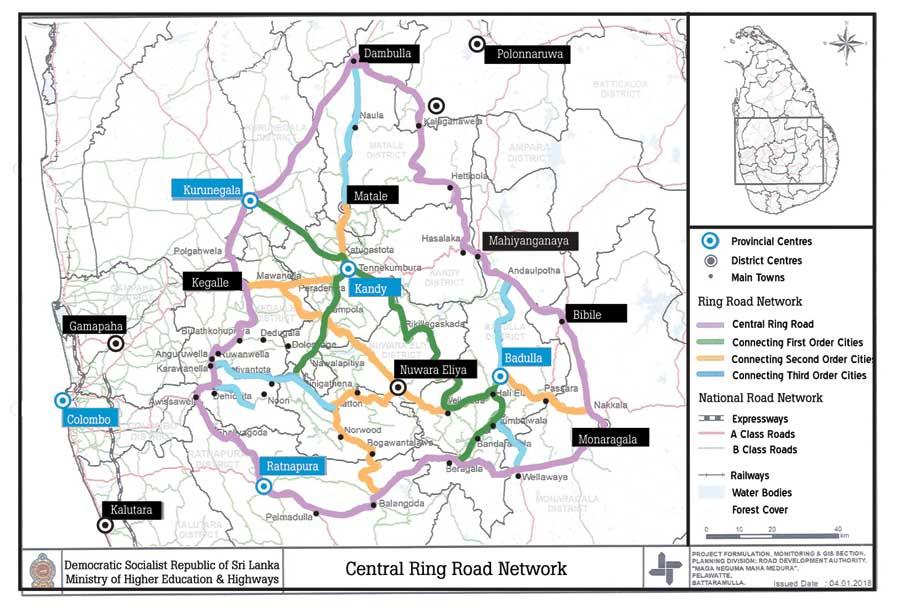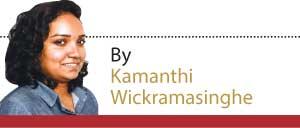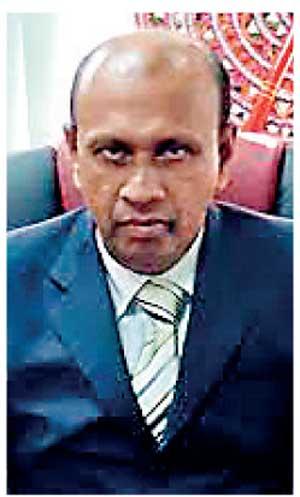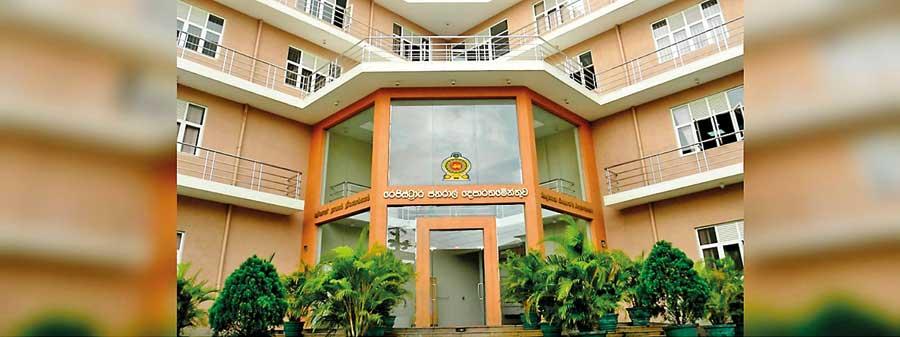14 Feb 2020 - {{hitsCtrl.values.hits}}

- MCC requirements for administration seem too harsh, they require the Government to appoint a Primary agent
- MCA-Sri Lanka shall have operational and legal independence and full decision- making autonomy
MCC or the Millennium Challenge Compact is to be signed between US acting through the Millennium Challenge Corporation and The Government of Sri Lanka. This compact deals with two programmes:
(1) arranging the efficiency and capacity of the road network and
(2) privatisation of Government land, registration and digitalisation of land .
Why is it necessary to repeal the authority of the judiciary for the administration of these two programmes, question senior lawyers studying the compact, claiming that it is a high price to pay.
With that in mind, the Daily Mirror studies several issues that need to be fixed in the existing laws before any programme for privatisation of land comes into operation.
The administration of land registries, specifically in USA , UK Australia, New Zealand and other developed nations, is conducted with high security and with the application of stringent laws. No one is allowed to enter the registries. No foreigners are allowed. MCC requirements for administration seem too harsh, it requires the Government to appoint a Primary agent and the agent must operate without judicial intervention.
MCC Annex 1 page 34 titles Independence and autonomy of MCC States that the Government shall establish an accountable entity. MCA- Sri Lanka, as a company limited by guarantee that shall be created under the Companies Act No. 7 of 2007. MCA- Sri Lanka shall be the Government’s primary agent responsible for exercising the Government’s right and obligations to oversee, manage and implement the programme and Projects.
It further states that MCA-Sri Lanka shall have operational and legal independence and full decision- making autonomy, including, inter alia, the ability, without consultation with, or the consent or approval of, any other party, to:
(1) enter into contracts in its own name;
(2) sue and be sued;
(3) establish an account with a financial institution in its own name and hold MCC Funding in that account;
(4) expend MCC Funding;
(5) engage contractors, consultants and/or grantees, including without limitation, procurement and fiscal agent; and
(6) competitively engage one or more auditors to conduct audits of its account. The government of MCA-Sri Lanka shall be set forth in more detail in the Programme Implementation Agreement and the
 |
| Registrar General N. C Vithanage |
constitutive documents and internal regulation of MCA-Sri Lanka (or as otherwise agreed in writing by the Parties). Programme Implementation Agreement is not yet available a future document Section 6.8 of MCC States that United State Government in the implementation of this Compact and the United State Government assume no liability for any claims or loss arising out of activities or omissions under this Compact.
The Government waives any and all claims against MCC or the United State Government or any current or former officer or employee of MCC or the United State Government for all loss damage, injury, or death arising out of activities or omissions under this Compact, and agrees that it shall not bring any claim or legal proceeding of any kind against any of the above entities or persons for any such loss, damage, injury, or death.
This means the 7 districts that fall within the MCC operation will be free of all Government and local Government laws. When Speaker Karu Jayasuriya met with Ven. Anunayake Theros of the Malwathu and Asgiriya Chapters they said there are so many experienced engineers and land specialist living in the country and abroad who could perform these tasks without violating the constitution.
Government should listen to the Mahanayakes request approach these people and incorporate them into the system.
Among foreign policymakers there is lack of knowledge about how to design, create secure property rights systems in countries that has had a long legal history. Detailed institutional analysis is required before engaging in nationalization and privatization of land and we are aware that the systems introduced in this manner have all failed in our country and in other jurisdictions.
The privatisation of land has already commenced. The protective arm of the Government with a simple law for all ethnic groups ceases to exist and the women will come within the Kandyan law, Thesawalamai Law and the Muslim law. The only issue the women had when the lands belong to the Government was male preference for inheritance which could have been easily repealed.
Muditha became a victim of the Kandyan law when the Government gave an absolute grant to her. She happily obtained a full grant and was cultivating on it. Her sister and brother in law cunningly had requested to exchange her land for another land belonging to them. She had agreed, she says she signed deeds prepared by lawyers, for the exchange. The lawyers the sister and brother in law made use of the Kandyan law, prepared a deed of gift in favour of Muditha from the bother in-law , but cunningly made a full transfer deed from her to the brother in law. [This could have been done with a single deed of exchange]
Then Muditha moved out from the land she received from the Government to the land she received from the gift of deed given by the brother in law . Muditha commenced building on this land when one day she was asked to move out of the land as under the Kandyan law brother in-law had revoked the deed of gift.
“When I went to the Police I was told that the Deed of gift had been revoked under the Kandyan law,” she said while speaking to the Daily Mirror. “The other party filed a case against me claiming that they have the right to revoke the gift as I don’t treat them well according to the Kandyan law. That is why I am chased out of the land she said. The brother in law and the sister under the archaic Kandyan law became the owner of both lands. They are blocking out and selling the land. She said that she trusted everyone and did not know what she had signed.
Successive Governments listened only to advise of the World Bank USAID US actors relating to land laws and land policy . Even they had advised the strategies of property rights creation based on the evolutionary path and the legislative path which the Governments had not followed .
The World Bank reports of 2001 and 2007 specifically states that Sri Lanka lacks institutions and professionals to move forward. It was therefore considered that Sri Lanka was not ready for proceeding with digitalisation and other progressive steps relating to land. The World Bank lists many issues relevant in 2019 vis-à-vis the MCC Agreement. These include :
1.Land Settlement Department staff lack skills in adjudication, for example, existing information is not sufficiently used, third party interests are not informed (hence disputes are created and rights are not protected);
2.The legal framework for land titling is inadequate; far too many Ministries deal with the subject—there is no coordination
3.The organisational framework not efficient, effective, or sustainable;
4.No motivation to carry out a continuing land related policy reform dialogue; and
Human resource development essential for an efficient long-term land titling programme not addressed.
Early last year, the Registrar General’s Department issued a statement saying that 40-50% of land deeds are forged and the only solution would be to computerize all details. Prior to computerization it was essential that the register should have been revised and stringent laws put in place. Digitalisation is taking place today copying the names of the owners without any revision, as the funds have already arrived .
Speaking to the Daily Mirror, Registrar General N. C Vithanage said that it is the duty of the Notary to send genuine documents. “What we do is register them only and we are not responsible for the contents.” In fact the Registrar General cannot be held responsible as per Section 7 of the Registration of documents Ordinance of 1927 which states that the registrar is not responsible for the validity of notarial documents he has to register all forged, valid or invalid deeds.
He further said that the daybook is maintained using a software. “The deed is written in the digital format and it cannot be destroyed since everything is stored in Cloud. But the forged documents continue to be registered.” Whether the new survey plan and a certificate with high tech methods issued to owners would give any benefit to the owners, remains for the readers to decide.
Notaries only have a moral duty, there are no laws as described by the Registrar General to send genuine documents. In fact Section 33 of the Notaries Ordinance also states that all notarised deeds are valid even if the rules are not observed by notaries. This law with the law that Registrar is not responsible for the validity of the deeds are great laws meant for fraudsters
Registrar also informed the Daily Mirror that following another report issued by the Attorney General’s Department, it was revealed that all information in the Registrar General’s Department database was secured with a single password. In turn it would be a risk to the safety of data as deeds could be forged, manipulated along with other civil registration documents. However Vithanage was of the view that this common password is given for people to check if their copy of the birth certificate or deed is accurate and not to manipulate data. “It is the administrator that has access to data,” he said.

Registrar General’s Department
Our lands are on the e-register, our paper deeds are taken away and all private and confidential information about our lands are published on the internet, the heading of this publication is called, “Ratmalana - National Digital Library of Sri Lanka”. The address on this website reads as 220.247.247.85.>bitstream>handle.
With one click on the file anyone could view the ID number, full name and all the properties that a person owns with their situation. The unauthorized publishing of this information represents a violation of our privacy. Owners lament this should have never happened. Land registry data should be more secure especially when cyber security is a top concern for most governments and private corporations.
Therefore land owners urge that their identifications are protected like in banks. In fact Central Bank laws are not followed by the registry. Legislation needs to be passed as in other nations for the protection of signatures. 1927 and 1907 statutes will not be sufficient to protect owners on a digital register, governed by Bim Saviya.
The law stipulates that, if a person A buys a land with a forged signature, the deed will be registered as confirmed by the registrar. There is no law to verify the validity of the deed. The court also has no provision to intervene to grant relief to owners under Bim Saviya.
Therefore what benefit could the owners have from the new survey plan and digitalization?
Giving away of ownership grants is not a solution for the poor. Legal experts opine that they require the facilities to cultivate and sell their products, not a burden to manage with foreign laws unknown to them with heavy costs in an unreliable legal environment with new laws and archaic ethnic laws.
Hence, the Government should follow the advice of the World Bank and Economic Commissions, Geneva Land Administration guidelines to ensure that owners are safe before privatizing and removing the paper documents. The Government must archive the century-old paper documents.
(Additional reporting by a senior lawyer who has researched on the subject of registration and digitalisation in several countries for over 15 years. She had made presentations in several countries including USA, UK, Malaysia, Singapore, New Zealand and in Sri Lanka on the subject of Registration, Torrens law and digitalisation. She had interviewed Registrars of Hong Kong UK and Singapore and several property rights organisations in USA. She has written papers which were published in several countries and had made presentations at the World Bank meetings on the topic of ‘Third world countries and introduction of foreign laws from prosperous nations will they work’. She is also a Chevening Scholar)
28 Nov 2024 24 minute ago
28 Nov 2024 32 minute ago
28 Nov 2024 2 hours ago
28 Nov 2024 2 hours ago
28 Nov 2024 4 hours ago